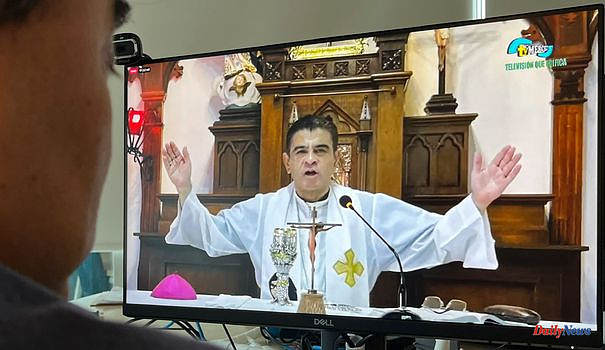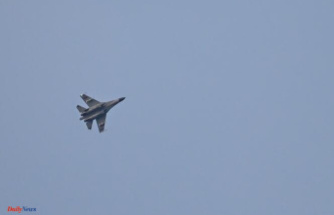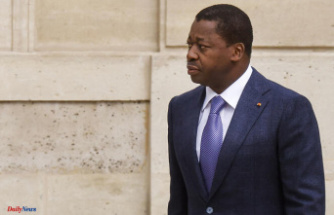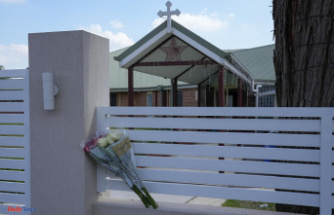Riot police "continue to close the street" in the bishopric of Matagalpa, 130 km northeast of the capital, Bishop Rolando Alvarez denounced Friday during a mass celebrated from the bishopric and broadcast live on social media. "The main door and the garage are also blocked" by the police, said the prelate, who has been prevented since Thursday from reaching his cathedral, four streets away.
"We are in the bishopric. No one can leave or enter," one of the priests entrenched with Mr. Alvarez told AFP.
Despite this situation, "we maintain our strength and our inner peace" because "we are men and women of peace, with a capacity for dialogue", Bishop Alvarez said during the mass.
For his part, the deputy Wilfredo Navarro, of the Sandinista party of Daniel Ortega, denounced Friday "a provocative attitude" of the bishop of Matagalpa.
Rolando Alvarez "incites violence (...) He has already done so in 2018. Let us remember that he led, with other priests, the coup attempt (against Daniel Ortega) which provoked so many of suffering and tears in Nicaragua," said the deputy in an article published on the website of public television Canal 4.
"His cassock does not grant him impunity", warned Mr. Navarro, asking the Catholic hierarchy to "call to order" the bishop of Matagalpa because he is "again transforming the church into barracks where the weapons were stored, where violence against the government was organized. When they were dens of delinquents and assassins".
Relations between the Catholic Church and Mr. Ortega's government have been strained since 2018, when protesters demanding the president's resignation took refuge in churches. Mr. Ortega has accused the Catholic Church of being complicit in a coup attempt hatched by Washington. The Apostolic Nuncio (Vatican Ambassador) Waldemar Sommertag was even expelled in March.
Rolando Alvarez, 55, said on Twitter on Thursday that he was prevented by the police from going to his cathedral to celebrate mass there as part of a "crusade of prayers" at the call of the Nicaraguan Church. He demanded respect for religious "freedom" after the authorities closed Catholic radio stations and denounced police "harassment" and "persecution against the Church".
The authorities must “allow us to celebrate our faith freely, (respect) our freedom of expression, because we are not harming anyone,” Alvarez said.
- "We will continue to pray" -
“If praying is a crime, I think we will continue to pray because it gives strength to our clergy and our priests,” said Maria Ruiz, a faithful Catholic from Matagalpa.
The European Union on Thursday condemned the "arbitrary" closure this week of seven Nicaraguan Catholic radio stations, as well as the "unprecedented" use of violence since 2018 to intimidate government opponents.
These closures come after those in June of the television channels of the Episcopal Conference, and those of the dioceses of Matagalpa and San José d'Estelí (northeast).
"We support the religious who, like Rolando Alvarez, resist with dignity, coherence and courage the persecutions of the Ortega government," the Nicaraguan Center for Human Rights (Cenidh) said on Twitter.
The Bishop of Matagalpa announced that he will celebrate since the bishopric every day at noon a mass broadcast on social networks, as well as hymns every evening.
Daniel Ortega, a 76-year-old ex-Sandinista guerrilla, was re-elected in November 2021 for a fourth consecutive presidential term, in a ballot from which all his potential opponents were absent, these having been arrested or forced into exile.
Protests calling for his resignation in 2018 were bloodily suppressed, with the death toll at least 355, hundreds imprisoned and tens of thousands exiled, according to the Inter-American Commission on Human Rights (IACHR). .












